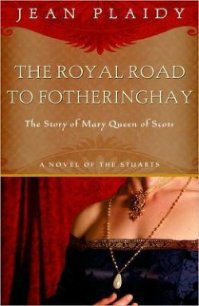In the Shadow of the Crown - Plaidy Jean (книги хорошем качестве бесплатно без регистрации .txt) 📗
I talked to Margaret about it.
“Poor lady,” she said. “Her ordeal was terrible and she was never strong. Keeping her shut up like that…it was all wrong. I said it from the first. Fresh air would have done her the world of good.”
“But she did it, Margaret. She has produced the son. Both my mother and Anne Boleyn would have given everything they had to do that.”
Margaret nodded. “What she needs now is rest… not all this coming and going.”
“She is happy now, Margaret. She has been so worried.”
“I can believe that! Well now, she must have a good rest … rest and quiet and no more children for a long time.”
“The King's appetite is whetted. She has given him a son. He will want more.”
“He will have to wait. He's got one. Let him be satisfied with that.”
There must be no delay. The baby must be baptized. He was to be called Edward. The King was in a mood of exuberance. He carried the boy in his arms and had to be restrained from bouncing him up and down in his excitement. He smiled good-humouredly at the nurse who stopped him. The baby was very precious.
It was a Friday when he was born and he was to be baptized on the Monday night.
“Too soon for the Queen,” commented Margaret.
“She will be in her bed.”
“There'll be too much fuss round her.”
“I think she must be very happy, Margaret.”
But Margaret looked grim. She bore a great grudge against the King; she could never forget what he had done to her darling's mother and all the subterfuge she had had to practice to keep it from the child.
The baptism of little Edward was to take place in Hampton Court Chapel, and I was to play an important part in the ceremony. My father would feel less anxious about my position now for he had a true heir to replace me. He was therefore inclined to bring me forward a little. Perhaps this was why I was chosen to present the baby at the font.
The procession would begin in the Queen's chamber. Jane, of course, could not rise from her bed; she was far too weak. It was this which angered Margaret so much. She thought rules and customs should be set aside if people were not well enough to partake in them. These men did not realize what it was like, giving birth to a child, she said; it was a pity some of them didn't have to do it sometimes, then they would have some idea of what it was like. Even if everything had gone smoothly, the Queen would have needed rest at such a time.
However, Jane, in accordance with custom, was to be removed from her bed to a state pallet, a type of couch. This was very grand, being decorated with crowns and the arms of England worked in gold thread. The counterpane was of scarlet velvet lined with ermine.
As they lifted her from the bed, Jane was hardly aware of what was happening. She did not seem to see us as we crowded into the chamber and the trumpets blared forth.
In his benign mood, the King had decided that Elizabeth might be present. She had been brought from her bed and put into ceremonial robes. She was to carry the chrisom and, as she was just four years old, this would have been too big a task for her, so Edward Seymour, one of the Queen's ambitious brothers, carried her in his arms.
How she loved the ceremony! It was nearly midnight but she was wide awake, smiling at everyone, so happy to be a part of the procession.
I saw her grandfather, Thomas Boleyn, Earl of Wiltshire, in the chapel; he had a towel about his neck and was carrying a wax taper. I felt a wave of revulsion toward the man. How could he take part in a ceremony which could never have come about but for the murder of his daughter? I supposed his head was more important to him than his principles.
The sight of the man brought home to me a reminder of the perilous times in which we were living and that, because of my position, I was more vulnerable than most.
The baby was carried by the Marchioness of Exeter, under a canopy borne by four noblemen, to a small corner of the chapel, and there he was baptized.
“God, in His almighty and infinite grace, grant good life and long to the right high, the right excellent and noble Prince Edward, Duke of Cornwall and Earl of Chester, most dear and entirely beloved son of our dread and gracious lord, Henry VIII.”
The trumpets rang out. Elizabeth took my hand, and together we walked in the procession back to our stepmother's bedchamber.
It was midnight, and the ceremony had lasted three hours.
The King was beside himself with joy; he smiled on all. He was certain that God had shown His approval for the match with Jane. I wondered if he felt a twinge of conscience, for what he had done to his once-loved Anne. He would be assuring himself: She was a witch. She set a spell on me, and I was not to blame.
God was confirming this. Had He not given him a son!
THE NEXT DAY Jane was very ill. The ceremony had completely exhausted her.
Her priests were at her bedside. She rallied a little but she had caught a bad chill on the night of the baptism and she could not recover from this, so weak was her state.
The King was to go to Esher. He always avoided being near the sick. Illness reminded him that he was not immune. He had never been the same since his fall, and the ulcer in his leg would not heal. It gave him great pain, and the doctors were reticent about it, as though they feared it might be a symptom of something else; so it must not be mentioned.
He was a little irritated. It was absurd that Jane, who had given the nation—and him—the most important gift of a son, should now be too ill to enjoy all the honors he had prepared for the occasion. She must make an effort to get well, he said.
Poor Jane was beyond making efforts. She grew worse, and the King finally decided that he must wait a while before leaving for Esher. He was now expressing concern for the Queen's health as she grew steadily worse.
On the 24th of October, twelve days after she had given birth to Edward, she became very gravely ill. Her confessor was with her. He administered Extreme Unction and at midnight she died.
So the rejoicing for the birth of a son was turned into mourning for the death of the Queen.
THE DAY AFTER Jane's death they embalmed her, and in her chamber Mass was said every day until they took her away. Tapers burned all through the night and ladies kept a watch. I was chief mourner, so I was present, and as I sat with others at the side of her dead body, I thought of her youth, her simplicity and her fears…Jane, who was the tool of ambitious men. I wondered if my father would ever have noticed her if her brothers had not thrust her forward. I was angry that women should be treated so… angry for my mother and myself… and yes, even Anne Boleyn.
And the nights passed thus in meditation and, in spite of the birth of the child, the feeling was strong within me that God had chosen me to work for Holy Church in my country.
It was on the 12th of November when we set out from Hampton for Windsor. In the hearse was Jane's coffin, and on it was a statue of her in wax, so lifelike that one could believe she was really there. The hair fell loose about the shoulders, and there was a crown on the head.
She was buried in St. George's Chapel.
I FELL ILL that winter. I suffered from acute headaches and dizziness and could not rise from my bed. My ladies rallied round me and served me well, and my father sent Dr. Butts to me. I recovered sufficiently to spend Christmas at Court. It was dismal. How could there be the usual feasting with the Queen so recently dead. My father wore black—a great concession. He had not worn it for his two previous wives. He was not his exuberant self, and I began to wonder whether he had cared for Jane. But I soon discovered that he was already putting out feelers to replace her.
His greatest joy was in his son. He would send for the child to be brought to him and hold him gently in his arms. He would look at him with wonder and talk to him. “You must get strong and big, my son. You have a realm to govern one day. A long time yet… but one day.” He would turn to those standing by. “See how he looks at me? He understands. Oh, he is a wonderful boy, this. He is the son I always wanted.”




